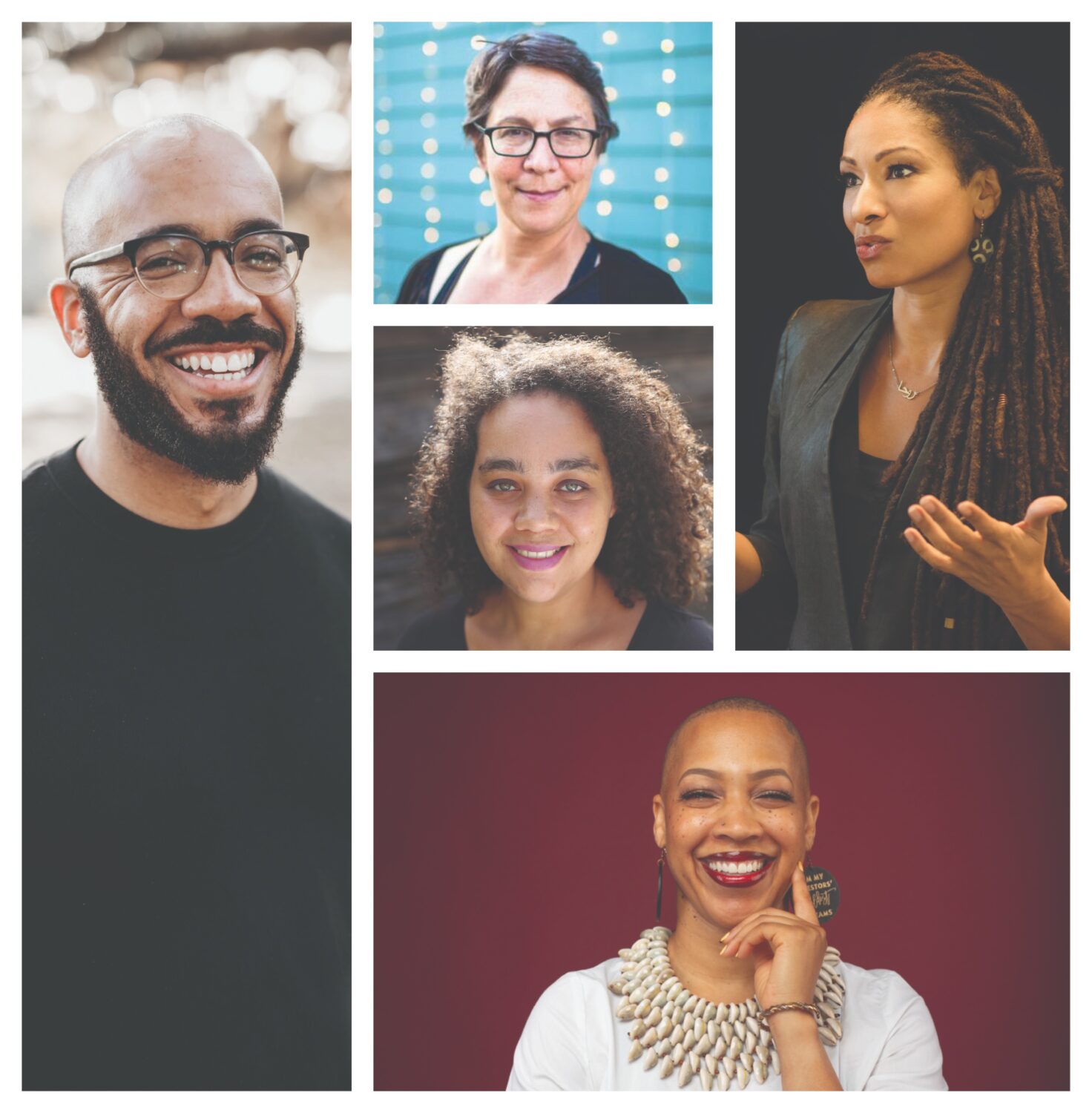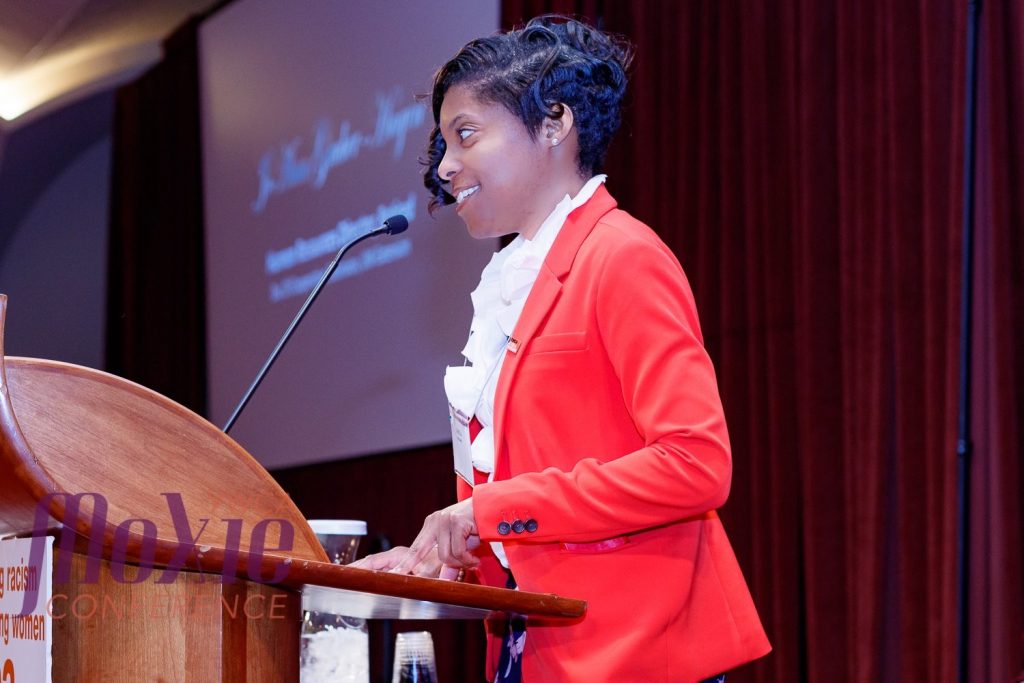
Over the next three days, YWCA Madison will be hosting their 2023 Racial Justice Summit starting off virtually today and Wednesday before ending with an in-person, final day of the Summit on Thursday.
What started as a small luncheon 22 years ago for the organization has grown into a large celebration and an opportunity for learning and growth that is attended by people from across the nation and globe. Geraldine Paredes Vásquez is the director for the race and gender equity team at the Madison YWCA, and sees the Summit as an extension of the work they do consistently to address racism, empower women, and center values of humanity, community, growth, and restoration.
“I always love to speak to the evolution of the practice, the understanding, and the different calls to be in movement and in action together that come from that journey,” Vásquez told Madison365. “I think it’s so important to stay in a place of listening to what is present in the context of our actions, and in this case of the Summit. We talked about this with our team. I don’t consider the Summit an event, I think of the Summit as a very intentional strategy for movement building around intersectional racial justice, collective healing, and liberation. For me, it’s part of what we are doing the whole year.”
 The first day of the Racial Justice Summit tonight will open with a land and water acknowledgment by Marin Webster Denning, whose Anishinaabe name is Naadawe Banaise, an Oneida Nation member and Milwaukee staple of the Native community. Ruha Benjamin, author and professor at Princeton University, will be the keynote speaker along with Clint Smith, an author and writer at “The Atlantic.” It will be hosted by Stephanie Janeth Salgado Altamirano, a local Madison organizer for Voces de la Frontera.
The first day of the Racial Justice Summit tonight will open with a land and water acknowledgment by Marin Webster Denning, whose Anishinaabe name is Naadawe Banaise, an Oneida Nation member and Milwaukee staple of the Native community. Ruha Benjamin, author and professor at Princeton University, will be the keynote speaker along with Clint Smith, an author and writer at “The Atlantic.” It will be hosted by Stephanie Janeth Salgado Altamirano, a local Madison organizer for Voces de la Frontera.
Additional sessions will be held today and drop-in spaces on Oct. 4 for those with a ticket that encompasses the entire experience. Topics such as youth, transgender and racial justice, class solidarity, healing and wellness, organizational practices, disability advocacy, and reproductive justice will be the focus of a plethora of sessions held by friends of the YWCA far and wide.
“There’s also the beauty of knowing that we are in relationship and practice with folks across the United States,” said Vásquez. “Some of those relationships actually continue past just one Summit. That’s something that I’m also noticing this year. There are some folks that are presenting sessions that are from outside of Madison, Wisconsin, that are relationships we have been building and nurturing. That movement building is also in relationship, although it’s in Madison with a special focus in Wisconsin, it’s in relationship with movements across the United States, and I think in some ways internationally, too.”
Vásquez made a point to highlight how important connection is in the process they hope to provide through the Summit, especially with people who are engaged in addressing systems of oppression and disparities. At a time where there is rising backlash to simply the acknowledgment of societal systems such as racism and sexism, it remains crucial to find a balance of self-reflection that still allows for seeing how your experience may be linked to others.
Vásquez echoed the importance of becoming aware as a means of challenging injustice, violence, and social isolation.
“I think what I’m seeing that is really key for us is how can we support folks to have the Summit be an experience where they get to do many things. One of them is actually becoming aware. I love to think of that invitation of critical connection, first to ourselves, to understand ourselves,” Vásquez said, giving credit to reflecting on such topics through the work of well-known UW-Madison community member Dr. Hazel Symonette.
“She has a beautiful body of work around understanding yourself in context, and how that is key for everything that we do. Who we are is always in relationship with many things … with other folks, with the cultures that shaped us, and the cultures that are outside the cultures that shape us, so that critical connection starts with ourselves.”
The virtual day on Oct. 4 will have an Intergenerational Generative Dialogue starting at 9 a.m. hosted by local WORT Public Affair host Ali Muldrow. That dialogue will include Ja’Loni Amor Owns, a Black queer reproductive justice organizer and doula; Kabzuag Vaj, founder and co-executive director of Freedom Inc.; and strategic social justice marketer, Mickey Mestiza.

The closing keynote for Wednesday, Oct. 4, will be a dialogue and practice with author, mother, and artist Autumn Brown along with fellow author and bodyworker Susan Raffo. Vásquez looks forward most to the feelings of togetherness and joy that moving through another year’s Summit will bring, as she made clear that their goals along with the goals of YWCA Madison CEO Vanessa McDowell converge around making the Summit, “not a moment, but a movement.”
“I think part of this process is being able to be in deep community, while still stewarding each other’s humanity and the ways in which we need to grow,” said Vásquez in closing. “In order to actually become more free. Understanding freedom, not as an individual thing, but as interconnected. Honestly, a thing that I believe is unquestionable is that intrinsic, sacred interconnectedness that is among everything. When we can be in spaces that support us to engage with our growth edge, still with the stewardship of our humanity in deep community, and with that bigger purpose of restoring our sense of self, sacred relationship, and frankly purpose of life even … something very special happens.”
Tickets are still available for the virtual keynotes on Oct. 3, 10 a.m.-noon and Oct. 4, 9-11 a.m. and a closing keynote from 2-4 p.m. Find more information and purchase a ticket for the virtual keynotes at this year’s Racial Justice Summit at the YWCA website here.



